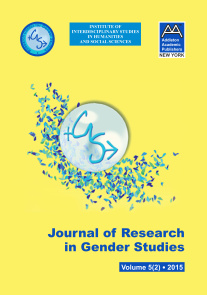THE VOICE OF SUBALTERN IN
MARGARET ATWOOD’S SURFACING:
AN ANTICOLONIALIST APPROACH TO THE NOVEL
THE VOICE OF SUBALTERN IN
MARGARET ATWOOD’S SURFACING:
AN ANTICOLONIALIST APPROACH TO THE NOVEL
Author(s): Cristina NicolaescuSubject(s): Social Sciences
Published by: Addleton Academic Publishers
Keywords: ecofeminism; subaltern; voice; wilderness; nature
Summary/Abstract: This study aims to examine Margaret Atwood’s Surfacing from the ecofeminist point of view in the light of Spivak’s theory. In her essay “Can the Subaltern Speak?” Spivak questions the concept of the colonial “subject” and the “other.” Atwood creates an unnamed protagonist and displays the difficulties of being a woman in a patriarchal world. While doing this, Atwood establishes a connection between woman and the nature which are both exploited and subordinated by patriarchal society. The protagonist, her friend Anna and the nature are subordinated by this patriarchal world and they look helpless and desperate. But at the end of the novel, the protagonist decides to rebel and make her voice heard by the subordinator (her boyfriend). In this process, the protagonist doesn’t use subordinator’s language to be heard by others. Unlike the patriarchal world, she equals herself to the nature and tries to create a new civilization which is in harmony with the nature. pp. 350–355
Journal: Journal of Research in Gender Studies
- Issue Year: 5/2015
- Issue No: 2
- Page Range: 350-355
- Page Count: 6
- Language: English
- Content File-PDF

